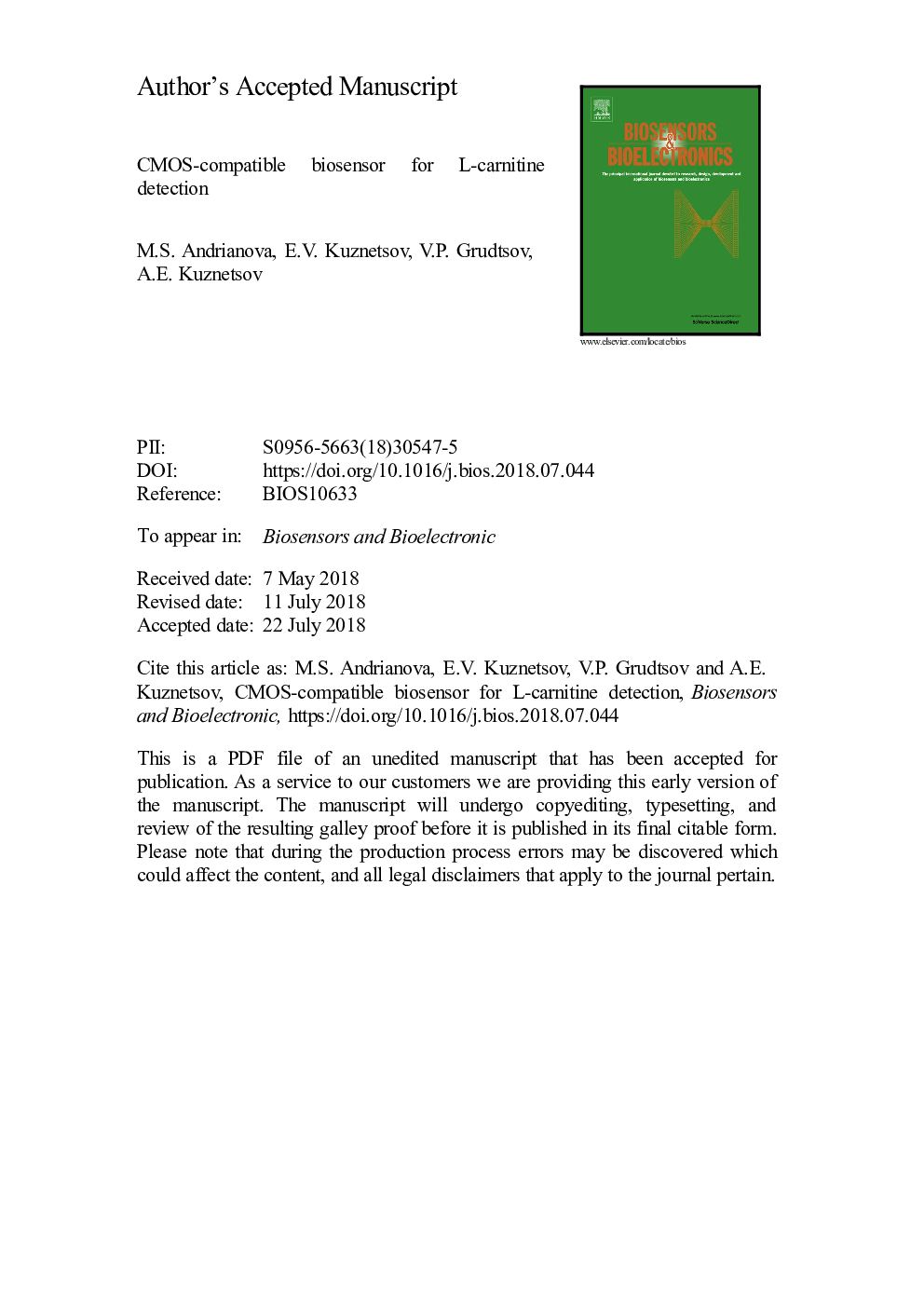| Article ID | Journal | Published Year | Pages | File Type |
|---|---|---|---|---|
| 7228874 | Biosensors and Bioelectronics | 2018 | 24 Pages |
Abstract
A CMOS-compatible ISFET with a Ta2O5 sensitive surface was developed. The structure was optimized for achieving high sensitivity using a subthreshold operation mode and by reducing the influence of the capacitances on the value of subthreshold swing. The developed ISFET was used as a basis for a biosensor for L-carnitine detection. To this end, carnitine acetyltransferase was immobilized on the ISFET sensitive surface. The immobilized enzyme was active (0.082 U/g model plate). The complete microsystem, consisting of a packaged chip, an immobilized enzyme and a microfluidic channel, detected L-carnitine at a range of 0.2-100â¯Î¼M with a LOD of 0.2â¯Î¼M. The biosensor response was linear in the range of 0.2-50â¯Î¼M of L-carnitine with sensitivity 18.0â¯Â±â¯1.7â¯mV/μM. An experiment with artificial urine containing 1.3â¯Î¼Mâ¯L-carnitine showed that the proposed biosensor could be used on a real sample. Therefore, a new sensor specially optimized for biosensing CMOS-compatible ISFET structures and direct determination of L-carnitine with immobilized carnitine acetyltransferase was developed.
Related Topics
Physical Sciences and Engineering
Chemistry
Analytical Chemistry
Authors
M.S. Andrianova, E.V. Kuznetsov, V.P. Grudtsov, A.E. Kuznetsov,
